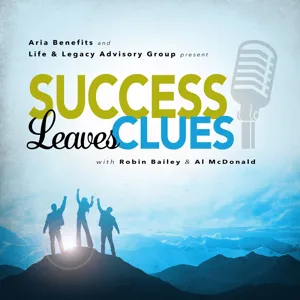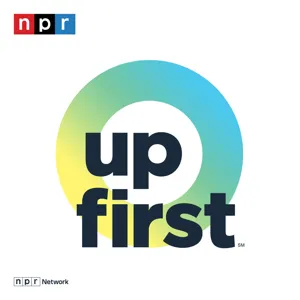Podcast Summary
FDA authorizes Pfizer vaccine for 12-15 year olds: The FDA has approved the Pfizer vaccine for 12 to 15-year-olds, providing hope for a more normal summer as cases decline and more adults get vaccinated.
The FDA has authorized the use of the Pfizer vaccine for 12 to 15-year-olds based on positive clinical trial data. The vaccine has shown to be effective in creating antibodies in this age group and has mild side effects. Pfizer plans to monitor participants for long-term protection and safety for the next two years. This is a significant step towards vaccinating a larger portion of the population and potentially returning to a more normal summer. The number of new coronavirus cases continues to decline around the country, and over 40% of the adult population is now vaccinated. These developments offer hope for a summer that may feel more familiar.
CDC reports 100% effectiveness of COVID-19 vaccine for adolescents 12-15: The COVID-19 vaccine is 100% effective for adolescents 12-15, with similar side effects to adults. Benefits outweigh risks, but parents remain hesitant. Pediatricians, including the AAP, are reassuring parents and confident in the vaccine's safety and efficacy.
The COVID-19 vaccine shows promising effectiveness and a good safety profile for adolescents aged 12 to 15. According to the Centers for Disease Control and Prevention's (CDC) advisory committee on immunization practices, the vaccine appears to be 100% effective in preventing COVID-19 in this age group based on clinical trial data. Side effects, such as fever and arm pain, are similar to those seen in adults. The benefits of the vaccine far outweigh the risks, but some parents are hesitant to get their children vaccinated. The American Academy of Pediatrics, including its president Dr. Lee Beers, is working to reassure parents and answer questions about the vaccine's safety and efficacy. Pediatricians, including Dr. Beers herself, are confident in the vaccine and have administered it to their own children. The vaccine campaign is at an inflection point, with hesitancy in adults decreasing, but continued efforts are needed to address concerns among parents.
Addressing vaccine hesitancy and increasing access for younger demographics: Efforts are being made to make COVID-19 vaccines more accessible and convenient for younger demographics, including pediatricians, pharmacies, and new initiatives like mobile clinics and walk-up vaccinations at stores.
While there's decreasing hesitancy among certain demographics, such as 12 to 15-year-olds, overall enthusiasm for the COVID-19 vaccine has leveled off. Some pediatricians and pharmacies will offer vaccines to younger kids, and making it convenient for people to get vaccinated can help increase uptake. However, there's still hesitancy among some groups, and efforts are being made to go directly to communities to increase access and vaccination rates. Despite some surveys showing hesitancy, many teenagers are excited about getting vaccinated, as it can bring a sense of liberation after months of missed activities. However, accessibility remains a significant issue for some, and new initiatives, such as mobile clinics and walk-up vaccinations at stores like Walmart, are aimed at addressing this challenge.
Biden administration launches hotline to help those with tech barriers get vaccines: The Biden administration is working to make COVID-19 vaccines accessible to all, including those with technology challenges, while the future of vaccine mandates for school attendance remains uncertain.
The Biden administration is making efforts to make COVID-19 vaccines more accessible to everyone, including those with technology barriers, by launching a new assistance hotline. However, the requirement of vaccines for school attendance for kids is still uncertain and depends on safety data and state decisions. Pfizer has started the process for full FDA approval of the vaccine for those 16 and older, which could lead to more widespread mandatory requirements in various institutions. With cases dropping and more people getting vaccinated, there's optimism for the next few months, but full approval could open up more opportunities for mandatory vaccinations.
Progress in US fight against COVID-19, but stay vigilant: The US is making progress against COVID-19 with declining cases, hospitalizations, and deaths, but it's important to stay vigilant as the virus continues to circulate globally. Masking may become a seasonal measure in the future.
The US is making progress in its fight against COVID-19, with declining cases, hospitalizations, and deaths, but it's important to stay vigilant as the virus continues to circulate globally. CDC Director Woodlinski and Dr. Fauci have expressed optimism about the summer, but have also urged caution and the need to continue vaccinations. Masking may become a seasonal measure in the future. While progress is being made in the US, the virus is still a significant issue in countries like Brazil and India. Many scientists predict that COVID-19 will become endemic, meaning it will continue to circulate in pockets around the world for years to come.
Cutting off communication lines in times of conflict: Understanding the challenges and solutions in various sectors, like retirement, when global capital markets are at stake is crucial during conflicts.
In times of conflict, cutting off communication lines is a crucial first step in any invasion. This was exemplified in the story from NPR's Invisibilia about a revolt against the mainstream media in Stockton, California. The consequences of winning such a battle can be significant, and it's essential to understand the challenges and solutions in various sectors, such as retirement, where the global capital markets play a significant role. Larry Fink, BlackRock's chairman and CEO, discussed these issues in the latest episode of The Bid. For those interested in market insights from BlackRock's thought leaders, it's recommended to listen to the episode and subscribe to The Bid.





